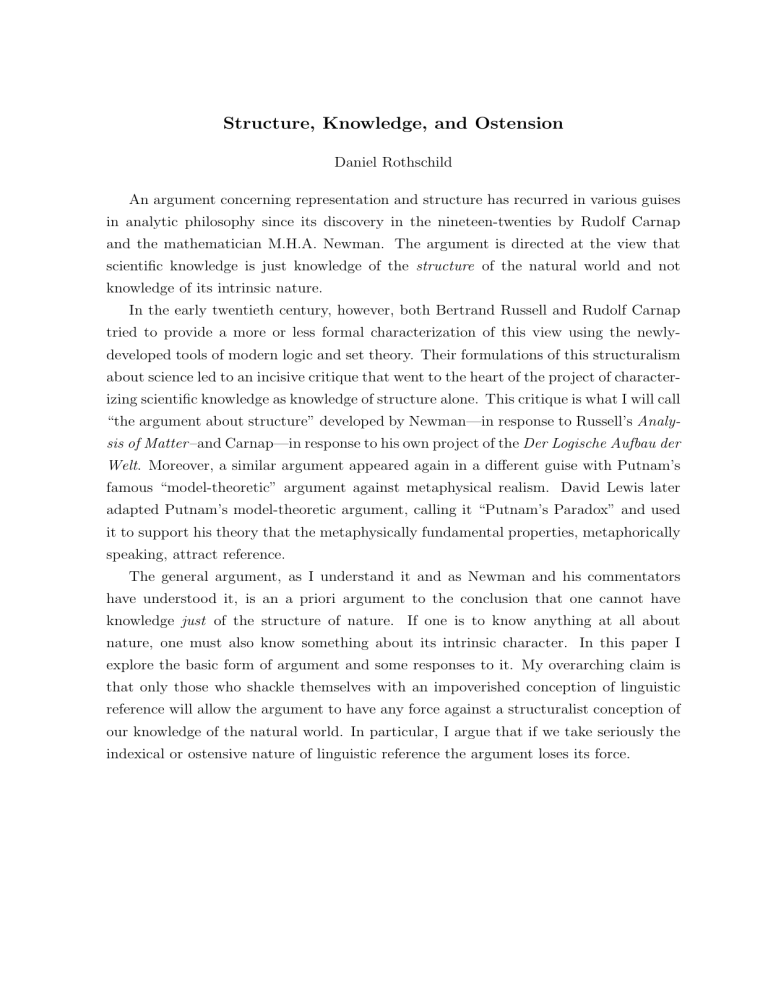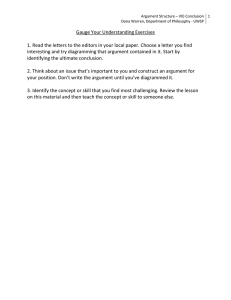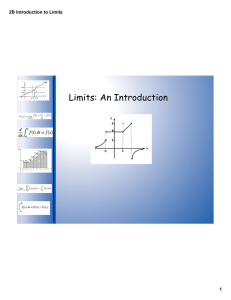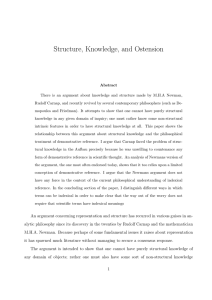Structure, Knowledge, and Ostension

Structure, Knowledge, and Ostension
Daniel Rothschild
An argument concerning representation and structure has recurred in various guises in analytic philosophy since its discovery in the nineteen-twenties by Rudolf Carnap and the mathematician M.H.A. Newman. The argument is directed at the view that scientific knowledge is just knowledge of the structure of the natural world and not knowledge of its intrinsic nature.
In the early twentieth century, however, both Bertrand Russell and Rudolf Carnap tried to provide a more or less formal characterization of this view using the newlydeveloped tools of modern logic and set theory. Their formulations of this structuralism about science led to an incisive critique that went to the heart of the project of characterizing scientific knowledge as knowledge of structure alone. This critique is what I will call
“the argument about structure” developed by Newman—in response to Russell’s Analysis of Matter –and Carnap—in response to his own project of the Der Logische Aufbau der
Welt . Moreover, a similar argument appeared again in a different guise with Putnam’s famous “model-theoretic” argument against metaphysical realism. David Lewis later adapted Putnam’s model-theoretic argument, calling it “Putnam’s Paradox” and used it to support his theory that the metaphysically fundamental properties, metaphorically speaking, attract reference.
The general argument, as I understand it and as Newman and his commentators have understood it, is an a priori argument to the conclusion that one cannot have knowledge just of the structure of nature. If one is to know anything at all about nature, one must also know something about its intrinsic character. In this paper I explore the basic form of argument and some responses to it. My overarching claim is that only those who shackle themselves with an impoverished conception of linguistic reference will allow the argument to have any force against a structuralist conception of our knowledge of the natural world. In particular, I argue that if we take seriously the indexical or ostensive nature of linguistic reference the argument loses its force.





